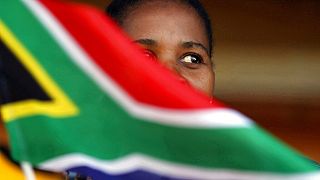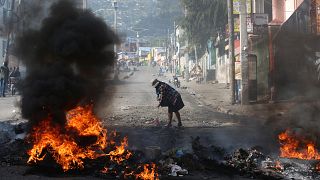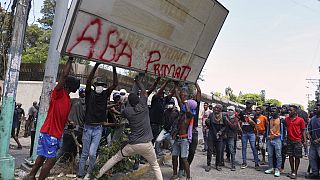Haiti
Haiti's transitional council was sworn in on Thursday, after Prime Minister Ariel Henry's formal resignation earlier in the day.
Amidst the sound of nearby sporadic gunfire coming from outside the National Palace, the new nine-member transitional council was sworn in.
The swearing-in took place more than a month after Caribbean leaders announced its creation following an emergency meeting to tackle Haiti’s spiraling crisis.
A second part of the ceremony was held at the Prime Minister’s office in a different and safer part of the capital.
Addressing a crowded room, newly appointed interim Prime Minister, Michel Patrick Boisvert, said that Haiti's crisis had gone on too long and that the country now found itself at a crossroads.
The transitional council members, as well as the country's top police and military officials, stood behind him.
“After two long months of debate […] a solution has been found,” Boisvert said. “Today is an important day in the life of our dear republic.”
He called the transitional council a “Haitian solution” and directed his remarks toward them.
Boisvert wished them success, adding, “I believe the determination is there.”
After the speeches, the soft clink of glasses echoed in the room as attendees served champagne flutes toasted with a somber “To Haiti.”
The nine-member council, of which seven have voting powers, is also expected to help set the agenda of a new Cabinet.
It will also appoint a provisional electoral commission, a requirement before elections can take place, and establish a national security council.
The council’s non-renewable mandate expires Feb. 7, 2026, at which date a new president is scheduled to be sworn in.













01:06
UN warns of deepening Haiti crisis
Go to video
Protesters in Haiti demand protection against gangs
Go to video
Pics of the day: March 26, 2025
Go to video
Pics of the day: March 20, 2025
Go to video
Haiti: Unicef focuses on shelters for displaced children amid ongoing crisis
Go to video
Haiti police fire tear gas at protesters demanding protection from gangs